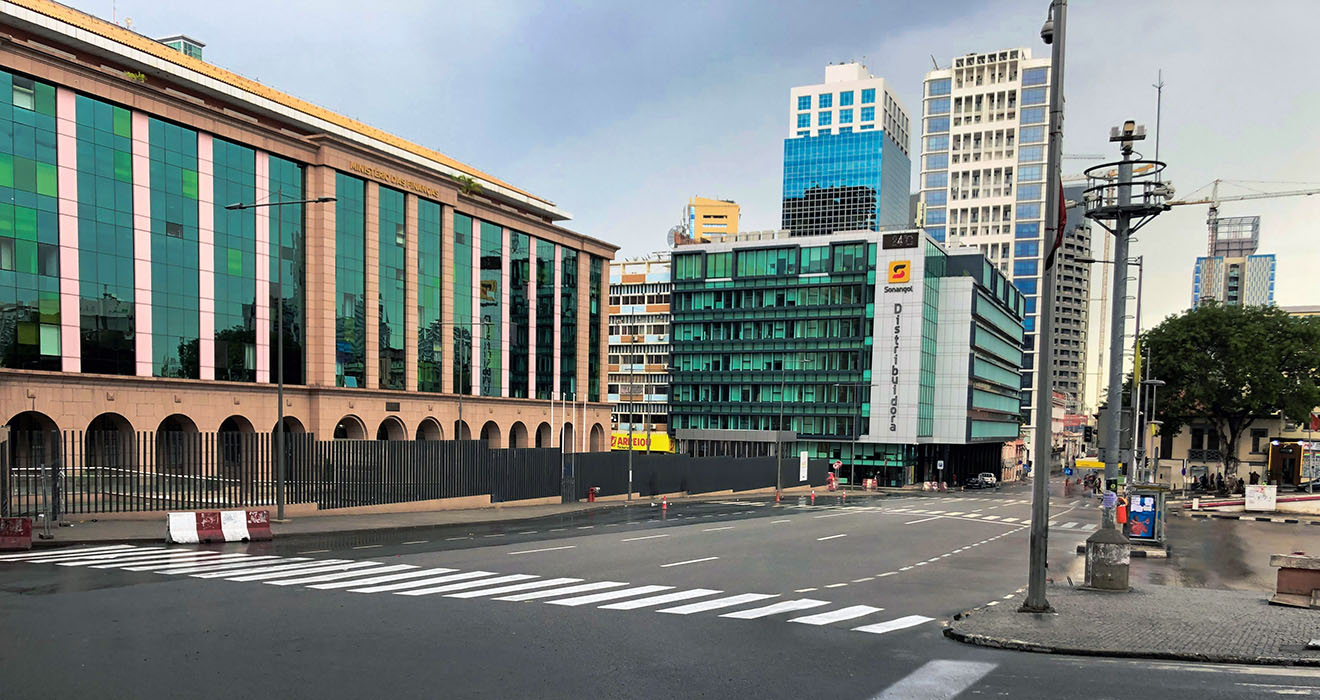Luanda
Discover the vibrant capital of Angola
About Luanda
Luanda, the capital city of Angola, is a bustling metropolis known for its rich history, vibrant culture, and stunning coastal landscapes. With a mix of modern skyscrapers and colonial architecture, Luanda offers visitors a unique blend of old and new. From beautiful beaches to lively markets and delicious cuisine, Luanda has something to offer every traveler.

Photo by Ruben Cabango on Unsplash
Getting There and Around
Arrival
Airports: Quatro de Fevereiro International Airport is the main airport serving Luanda, offering domestic and international flights.
Train Stations: Luanda Railway Station provides train services within Angola.
Bus Terminals: Various bus terminals are available for intercity and local bus transportation.
Transportation
Public Transport Options: Luanda offers public transport options including buses and minivans, but they can be crowded and not always reliable. Taxis are also widely available.
Car Rentals: Car rentals are available from several international companies at the airport and in the city.
Bike Shares: Bike-sharing services are not widely available in Luanda.
Tips: It's advisable to negotiate taxi fares before starting the journey, as meters are not always used.
Accommodations
Overview: Luanda offers a range of accommodations, from luxury hotels to budget-friendly guesthouses.
Types of Accommodations: Visitors can choose from beachfront resorts, boutique hotels, and serviced apartments.
Booking Tips: It's recommended to book accommodations in advance, especially during peak tourist seasons.
Local Regulations and Safety: Be aware of your surroundings and follow safety guidelines provided by your accommodation.
Accessibility: Some accommodations may have facilities for guests with disabilities, but it's best to inquire in advance.
Ilha do Cabo
This area offers upscale beachfront resorts and stunning ocean views.
Miramar
Known for its luxury hotels and proximity to shopping and dining options.
Ingombota
A central district with a mix of accommodations, restaurants, and cultural attractions.
Vila Alice
Offers a range of mid-range and budget-friendly accommodations.
Maculusso
Known for its vibrant nightlife and a variety of lodging options.
Attractions and Activities
Fortaleza de São Miguel
A historic fortress overlooking the sea, offering panoramic views of the city.
Mausoleum of Agostinho Neto
A significant memorial and museum dedicated to Angola's first president.
Avenida 4 de Fevereiro
A scenic waterfront promenade lined with palm trees and offering stunning sunset views.
National Museum of Slavery
An important museum showcasing the history of slavery in Angola and its impact on the nation.
Sangano Beach
A picturesque beach known for its clear waters and relaxing atmosphere.
Dining and Nightlife
Culinary Scene
Luanda's culinary scene offers a fusion of Portuguese, African, and international flavors, with an emphasis on fresh seafood and vibrant spices.
Ilha do Cabo
Known for its upscale restaurants offering seafood specialties and ocean views.
Miramar
Features a variety of dining options, from fine dining establishments to casual eateries.
Ingombota
A culinary hub with diverse restaurants serving both local and international cuisines.
Vila Alice
Offers a mix of traditional Angolan eateries and international dining experiences.
Maculusso
Known for its vibrant nightlife and a variety of dining venues catering to different tastes.
Festivals and Events
Luanda Carnival
An annual celebration featuring colorful parades, music, and dance performances.
Festival Internacional de Música do Sumbe
A music festival showcasing diverse genres and talented artists from Angola and beyond.
Luanda International Jazz Festival
An event that brings together jazz enthusiasts and renowned musicians for captivating performances.
Festival da Cultura Kongo
A cultural festival celebrating the heritage and traditions of the Kongo people.
Feira Internacional de Luanda
An international trade fair featuring exhibitions, business forums, and networking opportunities.
Practical Information
Safety Tips
Exercise caution and be aware of your surroundings, especially in crowded areas and at night. Keep valuables secure and avoid displaying signs of wealth.
Healthcare
Pharmacies: Pharmacies are available throughout the city, offering a range of medications and healthcare products.
Hospitals: Luanda has several hospitals and medical centers providing emergency and specialized healthcare services.
Emergency Services: In case of emergencies, dial the local emergency number or seek assistance from your accommodation or local authorities.
Currency and Payment
Local Currency: The official currency of Angola is the Angolan kwanza (AOA). US dollars and euros are also accepted in some establishments.
Tipping Customs: Tipping is not mandatory but is appreciated for good service, typically around 10% of the bill in restaurants and for other services.
Payment Methods Accepted: Major credit cards are accepted at hotels, upscale restaurants, and larger stores. Cash is widely used for smaller transactions.
Connectivity
Mobile Networks: Several mobile network providers offer prepaid SIM cards with data and calling plans for visitors.
SIM Cards: Purchase a local SIM card for affordable and convenient access to mobile networks during your stay.
WiFi: Many hotels, restaurants, and cafes offer free Wi-Fi for customers, and there are internet cafes available for internet access.
Local Customs and Etiquette
Culture Insights
Angolan culture values hospitality, respect for elders, and strong family ties. Visitors are often welcomed warmly and should reciprocate with politeness and gratitude.
Greetings
Common greetings include handshakes and verbal greetings such as 'bom dia' (good morning), 'boa tarde' (good afternoon), and 'boa noite' (good evening/night).
Social Behavior
Respect personal space and avoid intrusive questions. Engage in conversations with genuine interest and show appreciation for local customs and traditions.
Cultural Taboos
Avoid discussing sensitive topics such as politics, religion, and personal finances unless invited to do so by your hosts.